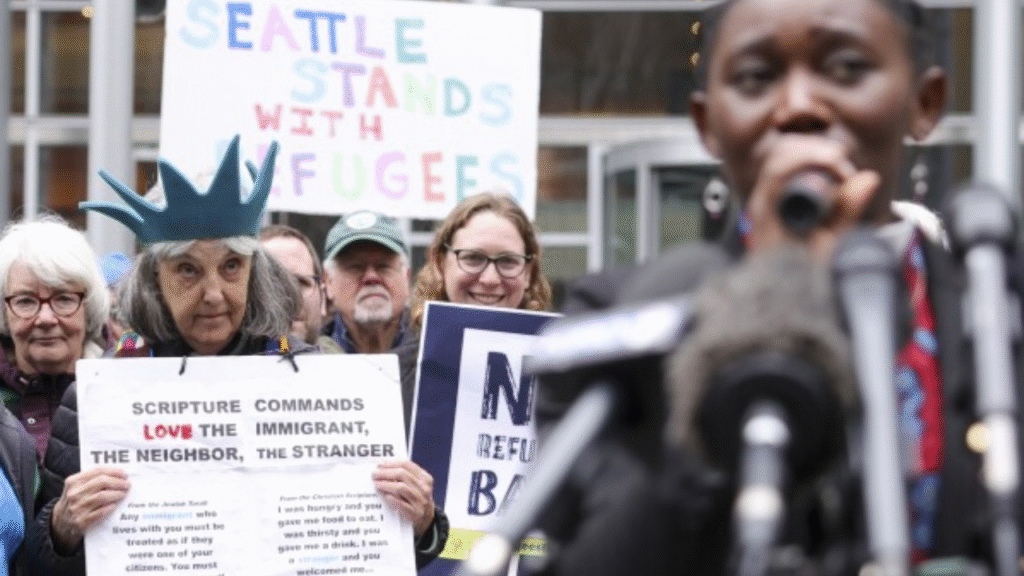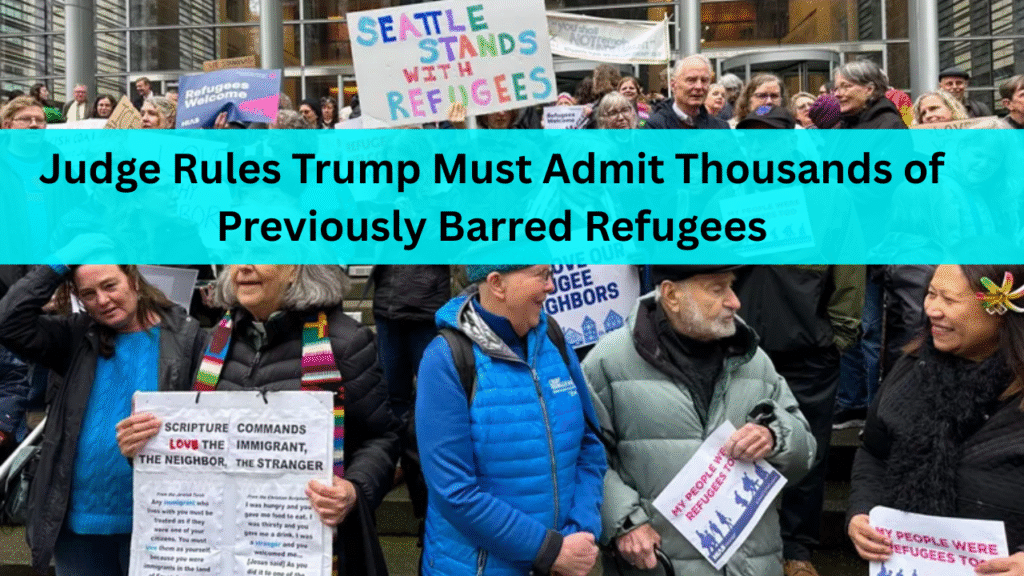In a significant legal blow to former President Donald Trump’s immigration policies, a federal judge has ordered the U.S. government to admit approximately 12,000 refugees who had been blocked from entering the country under an executive order issued during Trump’s second term.
U.S. District Judge Jamal Whitehead, presiding in the Western District of Washington, issued the ruling on Monday, rejecting the Trump administration’s narrow reading of a prior appellate court decision. The administration had argued that only 160 refugees those scheduled to travel within two weeks of the January 20, 2025 executive order were eligible for entry. The judge dismissed this interpretation, calling it a “hallucination” of new legal text that simply wasn’t there.
The ruling reinstates refugee admissions for thousands of people whose travel had been previously arranged and approved under the U.S. Refugee Admissions Program (USRAP), which was effectively paused by the executive order.
Background on the Executive Order
The executive order in question, issued on January 20 the first day of Trump’s second term sought to halt the refugee resettlement program authorized by Congress under the Refugee Act of 1980. The administration cited national security concerns and the need to reevaluate screening protocols as justification for the pause.
The order immediately suspended all ongoing resettlement operations and canceled scheduled travel for thousands of refugees awaiting entry to the U.S. These included families fleeing war zones, religious persecution, and humanitarian crises across Syria, Sudan, Afghanistan, and other regions.

Legal Challenge and Ruling
The legal challenge was brought by several refugee resettlement agencies and civil rights organizations, which argued the executive order violated existing statutory obligations and international humanitarian commitments.
The Ninth Circuit Court of Appeals had earlier issued a partial injunction, directing the administration to process refugees who already had approved travel plans. However, the Trump administration interpreted that ruling narrowly, allowing only a small fraction—160 individuals—to proceed.
Judge Whitehead, in his 42-page opinion, ruled that this interpretation lacked legal foundation. The court ordered the U.S. Department of State and Department of Homeland Security (DHS) to resume the admission process for the estimated 12,000 refugees who had completed the rigorous vetting procedures.
For more on the refugee admissions process, visit the U.S. State Department’s Refugee Admissions Program and the Department of Homeland Security websites.
Immediate Impact and Government Response
The decision is expected to provide immediate relief to refugee families who had been stranded in transit hubs or refugee camps for months. Many had sold belongings, quit jobs, and prepared for relocation to the U.S. before their travel was abruptly halted.
“Today’s ruling is a lifeline for families who have endured years of waiting and uncertainty,” said Miriam Ayad, legal director for the International Refugee Assistance Project (IRAP). “It reaffirms that the United States cannot simply abandon its commitments to the most vulnerable.”
The Trump administration has not yet announced whether it will appeal the decision, though sources close to the Department of Justice suggest that an appeal is under consideration.
Broader Implications
This ruling adds to a series of judicial pushbacks against Trump-era immigration policies, including travel bans, asylum restrictions, and refugee caps. During his first term, President Trump reduced the annual refugee cap to a historic low of 15,000. That number was raised again under President Biden but had remained a contentious issue during Trump’s return to office.
Conclusion
This court decision reaffirms that refugee protections and procedures cannot be overturned without clear legal authority. It restores hope for thousands of displaced individuals and reasserts the role of the judiciary in checking executive power. As the legal process continues, the humanitarian focus returns to ensuring safe resettlement for those affected.









